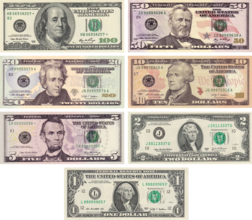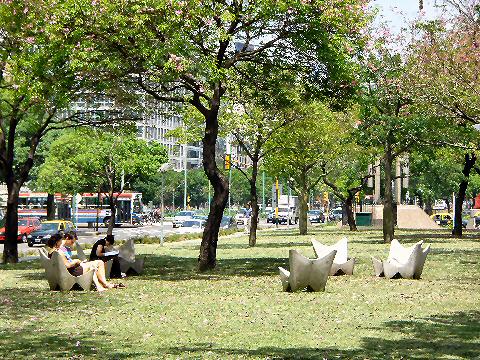If you have read my earlier post Food Etiquette, you see that the elderly is viewed very high up in society. The older you are, the more respect you are usually given in society. The white/gray hair represents wisdom. Also, since they are older, they have gone through more hardships and experiences than we, the younger generations, have, such us:
Friday, February 28, 2014
Thursday, February 27, 2014
Food Etiquette
This post will be mostly about food etiquette. There will be a later post about Chinese etiquette in general.
In Western culture, we normally put our young first before the elderly. In Chinese culture, it's the other way around. We put the elderly before anyone else. The way we see it is that: older you are, the wiser you are, therefore, you deserve more respect. In Hong Kong, we normally eat dimsum for lunch and family style with the Lazy Susan for dinner.
In Western culture, we normally put our young first before the elderly. In Chinese culture, it's the other way around. We put the elderly before anyone else. The way we see it is that: older you are, the wiser you are, therefore, you deserve more respect. In Hong Kong, we normally eat dimsum for lunch and family style with the Lazy Susan for dinner.
Wednesday, February 26, 2014
Chinese Medicine and Health Care
What is Chinese medicine? What's the difference between Chinese medicine and the normal medicine we receive?
In our culture, there are two types of medicine: Chinese and Western. Western medicine is made up of antibiotics, ibuprofen, flu shots, etc. They're the modern medicine and care you receive from a hospital. Chinese medicine is comprised of herbal medicine from natural ingredients, acupuncture, moxibustion, and other treatment for chronic illnesses and chronic problems that are not cured by modern medicine.
Although Western medicine is proved to be scientifically useful, Chinese medicine has been used for literally thousands of years and is sometimes believed to be a better and a more natural cure to diseases.
In our culture, there are two types of medicine: Chinese and Western. Western medicine is made up of antibiotics, ibuprofen, flu shots, etc. They're the modern medicine and care you receive from a hospital. Chinese medicine is comprised of herbal medicine from natural ingredients, acupuncture, moxibustion, and other treatment for chronic illnesses and chronic problems that are not cured by modern medicine.
Although Western medicine is proved to be scientifically useful, Chinese medicine has been used for literally thousands of years and is sometimes believed to be a better and a more natural cure to diseases.
Thursday, February 20, 2014
Pride and Prejudice: Part 2 - Prejudice
Chinese people are quite prejudiced. They discriminate against different cultures, races, and even themselves.
There are a lot of history behind the prejudices:
There are a lot of history behind the prejudices:
Pride and Prejudice: Part 1 - Pride
Pride and prejudice--no, not the book--is evident in Chinese culture. As you can see from the 2008 Beijing Olympic Opening Ceremony, China has immense pride and honor. Even children movies, like Mulan, mentions it.
"Dishonor! Dishonor on your whole family ... dishonor on you, dishonor on your cow..."
That may be a bad example, but from what I have experienced, Chinese people are very prideful... and very prejudiced (which will take up a new post later).
"Dishonor! Dishonor on your whole family ... dishonor on you, dishonor on your cow..."
 |
| http://data3.whicdn.com/images/55259515/large.gif |
That may be a bad example, but from what I have experienced, Chinese people are very prideful... and very prejudiced (which will take up a new post later).
Saturday, February 15, 2014
Currency
I've always thought that the US money was very boring looking. I mean, look at this:
And this is after our bills were added a bit of color and chemicals so it was harder for people to illegally print their own money.
The money is China and in Hong are much prettier, and it's a lot easier to find your different bills and coins.
 |
| US bills http://upload.wikimedia.org/wikipedia/commons/thumb/6/64/USDnotes.png/252px-USDnotes.png |
 |
| US coins http://timebusinessblog.files.wordpress.com/2012/01/coins1.jpg%3Fw%3D480%26h%3D320%26crop%3D1 |
The money is China and in Hong are much prettier, and it's a lot easier to find your different bills and coins.
Let's Line Up!
You're wandering around the stores and you're suddenly feeling hungry. In America, the norm is to line up politely with at least a foot between people. In China, that's definitely not the case. The mentality: SWARM.
 |
| Chinese people "lining up." http://farm7.static.flickr.com/6161/6203238053_8b5094f77d_m.jpg |
VERSUS
Thursday, February 6, 2014
Transportation in Hong Kong
So what's the difference between Hong Kong and the US? Well, for starters, Hong Kong is pretty "squashed" together, whereas places and buildings in the US is pretty well spaced out. Hong Kong frequently uses the MTR, taxis, and buses to get around whereas Americans use our personal cars.
 |
| Buildings in the US are so spaced out that a nice open park is very do-able in many areas. http://www.saltshaker.net/wp-content/9dejulio03.jpg |
VERSUS
 |
| Hong Kong buildings tightly packed together. http://www.nce.co.uk/pictures/586xAny/8/6/8/1307868_2102302032_89418432a5_o.jpg |
Since in the US, everything is more spaced out, it is harder to get to different places with public transportation because you would have to walk from the bus stop to your destination. In Hong Kong, since it is much more compacted, buses have a stop on about every 4 blocks or so and the subway (MTR) has a station every half a mile. Having your own personal car in the US is more convenient than in Hong Kong (because you'd have to find parking on the busy streets and there isn't enough space on the street to do that in the main parts of Hong Kong).Monday, February 3, 2014
Chinese Zodiac
There are 12 animals that are in the Chinese Zodiac. The order goes:
- Rat
- Ox
- Tiger
- Rabbit
- Dragon
- Snake
- Horse
- Goat
- Monkey
- Rooster
- Dog
- Pig
After the Year of the Pig, the cycle continues and returns to the Year of the Rat.
To answer the question: "why in this order?" There is a fable that goes with it...
Subscribe to:
Posts (Atom)

